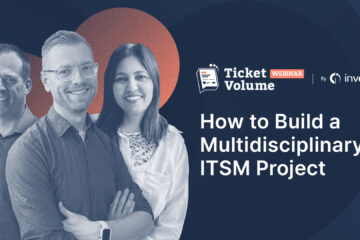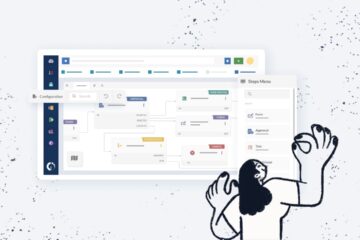As the Red Hat 7 End of Life (EOL) approaches, it’s natural to wonder about the implications. However, there’s no need to panic just yet. Once the maintenance support phase ends, the Extended Life Cycle Support kicks in.
During this time, it’s essential for IT asset managers to assess the software within their organization that may pose risks due to lack of maintenance or potential discontinuation.
This article will explore what Red Hat is, the products it offers, how maintenance cycles impact users, and how InvGate Insight can help in keeping software updated on company devices.
Let’s delve into it!
Understanding Red Hat 7
Before delving into what Red Hat Enterprise Linux 7 (RHEL 7) entails, it’s crucial to grasp the focus of Red Hat and how changes in its products impact users. Red Hat specializes in software development and services related to the Linux operating system, affecting users who rely on this open-source platform.
The number 7 designates the version of Linux tailored for enterprise environments, also known as a Linux distribution. With a total of 9 versions, each superseding the last, RHEL 7 offers new and enhanced services.
Each version follows a set of Life Cycles, outlining the maintenance and support for the product. RHEL 7 comprises four stages: Full Support, Maintenance Support 1, Maintenance Support 2, and Extended Life Phase. As Maintenance Support 2 nears its end, the Red Hat 7 End of Life is on the horizon, with no immediate cause for alarm.
Reasons for Deprecating Red Hat Linux Enterprise
While the term Red Hat 7 End of Life may sound concerning, it’s crucial to understand the distinction between End of Maintenance (EOM) and End of Life (EOL). EOM, set for June 30, 2024, signifies the end of access to critical security advisories and bug fix advisories. On the other hand, EOL, slated for June 30, 2028, indicates product discontinuation, prompting organizations to migrate to newer versions for continued support.
Software versions are phased out for various reasons, typically to introduce newer versions with enhanced features and advantages.
Impacted Products by Red Hat 7 End of Life
As RHEL 7 concludes its final Life Cycle stage, the product will be discontinued, necessitating a migration to newer versions or alternative products. Users who have already transitioned to other versions will not be significantly affected. However, it’s advisable to stay updated on version calendars and anticipate system changes. RHEL 8 and RHEL 9 also have designated EOL dates, ensuring users have ample time for transition.
Preparing for Red Hat 7 Replacement
While there’s time before Red Hat 7 End of Life, it’s essential to consider alternatives in advance, especially with the impending end of full support, which may impact security and privacy. Upgrading to RHEL 7 offers stability, new features, and security enhancements, aligning with compliance requirements. Users have the option of in-place upgrades or fresh installations, preparing for the transition.
Detecting Outdated Red Hat Linux Enterprise Devices
To identify outdated Red Hat 7 devices, leverage your IT Asset Management solution. With InvGate Insight, apply filters to pinpoint devices using RHEL and generate status reports.
When you’ve compiled the list of devices needing updates, export the data and share it with your service desk agents for prompt action to safeguard your organization.
In Conclusion
Red Hat 7 End of Life is approaching, serving as a reminder of the critical importance for IT management teams to swiftly and accurately identify devices at risk of software and hardware issues.
This period offers a chance to evaluate the operating systems, software, and hardware in use within our companies, emphasizing the need to maintain complete control over our assets.
If you’re interested in exploring InvGate Insight for software update management, don’t hesitate to request your 30-day free trial!
Frequently Asked Questions
Is Red Hat 7 still supported?
Yes, Red Hat 7 will be supported until its End of Maintenance on June 30, 2024. After this date, users will no longer receive critical security advisories and urgent bug fix advisories.
Is RHEL 7 End of Life in 2024?
No, Red Hat 7 End of Life is scheduled for June 30, 2028, in four years’ time.
Can you upgrade from RHEL 7 to 8?
Yes, users on RHEL 7 can upgrade to RHEL 8.
Can you upgrade from RHEL 7 to 9?
Absolutely, users on RHEL 7 can upgrade to RHEL 9. Considering the latest deployment of Red Hat’s Linux distribution, upgrading to this version is highly recommended.



